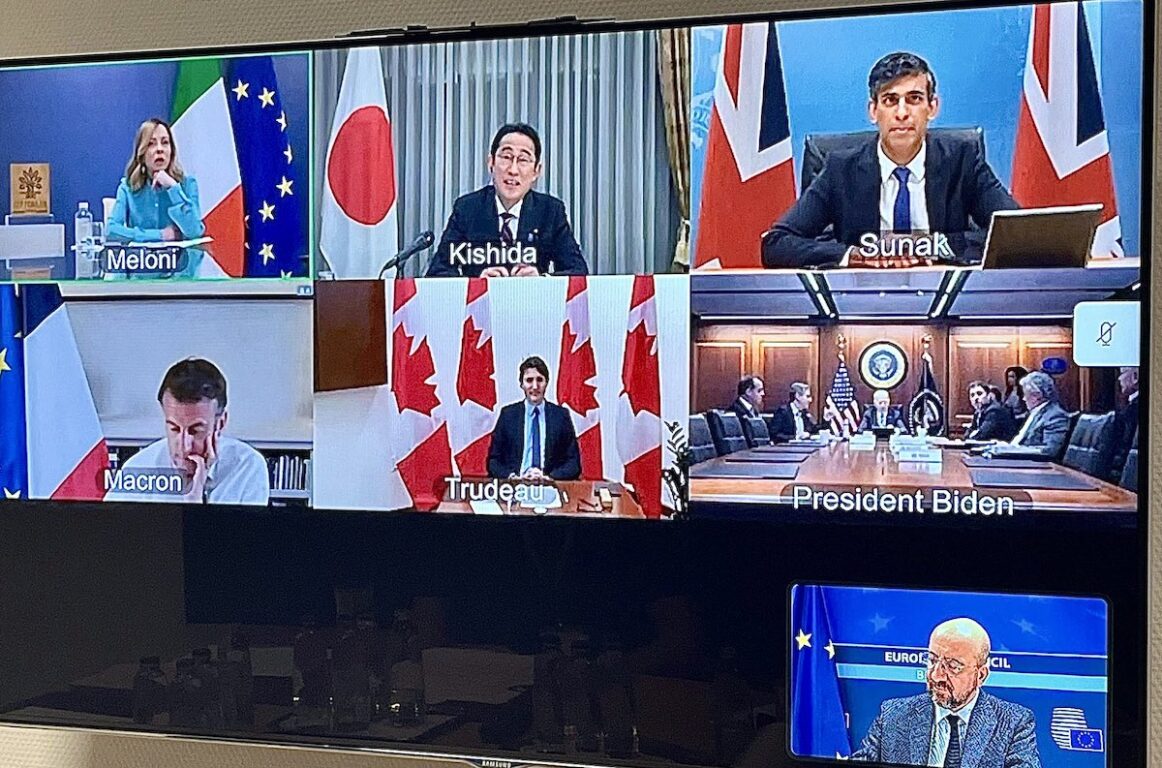Israel and Iran they don’t want to get into open conflict. However, the exchanges of fire in recent weeks – first the Israeli attack on the embassy in Damascus and then the Iranian retaliation – could inadvertently lead us to this outcome. Europe must look at the Arab states in the regionand in particular to members of the GCC, such as allies to help avert this possibility. A necessary condition for this to happen is that, in the hours and days following the attack, Europe does not commit the same mistakes it made after 7 October, siding in favor of one party against the other, thus becoming a victim of competition between two actors, instead of potential channel for dialogue.
On October 7, he changed the unwritten rules of competition between Tehran and Tel Aviv, leading both sides to raise the bar of tensions. Signs of a change compared to the past are represented by theIsraeli attack on the Iranian embassy in Damascus and by the decision of Tehran to respond by launching an attack from its territory to Israeli territory. In the past, Israel limited itself to targeting pro-Iranian militias in Syria and Iraq. For its part, Tehran continued to arm a series of paramilitary groups allied to it deployed on the borders with Israel. The conflict between the two remained latent but at low intensity. There was, furthermore, the role of the United States in placing limits on Israel’s operations to avoid a regional conflagration.
Now we enter a new phase where the rules of competition between the two actors have changed. Both want to demonstrate their ability to hit and humiliate the other. After October 7, the current Israeli government aims not only to eradicate Hamas, but also seems determined to build a security buffer against all actors linked to Tehran. Iran is leveraging the Israeli offensive to consolidate its legitimacy as the sole defender of the Palestinian cause and to strengthen ties with its allied paramilitary groups in Iraq, Syria and Lebanon, thus expanding its strategic influence in the Arab world.
Europe’s role in the Middle East crisis
The role of the great powers has changed. The competition between Iran and Israel occurs in a context where there is no global power to set the limits of this clash – the United States demonstrates a diminished ability to influence Israel – nor a regional power capable of counterbalancing and mediating between these two actors. Saudi Arabia tried, but without success, signing an agreement with Tehran and alluding, in the days before October 7, to its desire for normalization with Israel.
The consequences of a competition “without rules” there are many for a region so close to Europe. The Arab Levant (Iraq, Syria, Lebanon and Jordan) risks becoming a theater of confrontation between these two actors, worsening the profound crises that these countries are already experiencing. Crises such as that of the Red Sea (where the Houthis, a Yeminite group linked to Tehran, launch attacks on Western boats that cooperate with Israel) risk continuing, worsening and multiplying in other contexts. Furthermore, the Israeli-Palestinian conflict continues to deepen, spreading instability in the Middle East and attenuating the global polarization between the West and the Global South in favor of China and Russia.
Europe and its Member States, together with the Arab States of the region and in particular the members of the GCC, have every interest in collaborate to avert a regional crisis and they have some means to do so. First, the dialogue with Saudi Arabia it is necessary to advance an Arab proposal on the Israeli-Palestinian conflict in exchange for a return to the normalization process between Israel and Riyadh.
Europe and the GCC countries can also act as channels for dialogue to help Israel and Iran define the unwritten rules of competition in this new phase of history and avoid a direct confrontation. GCC members that have long-term relations with Iran – such as Oman – can help more clearly define Tehran’s intentions and the consequences of further attacks launched by Israel on Iranian targets.
European Union states with a long tradition of cooperation with Israel can do the same on the Israeli side. There European diplomacy it must therefore become a channel of dialogue between the parties in conflict instead of unilaterally proposing for or against one of them.
